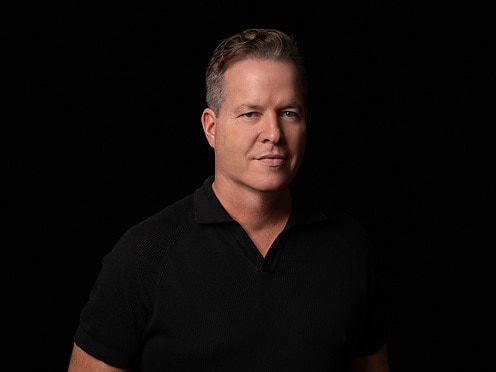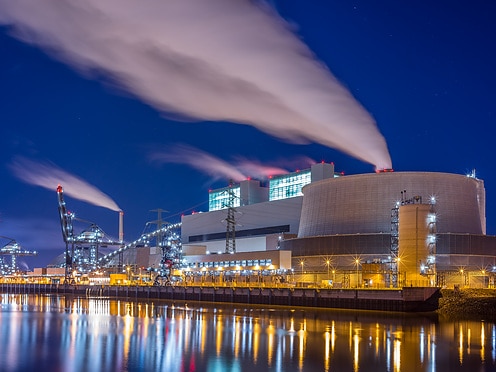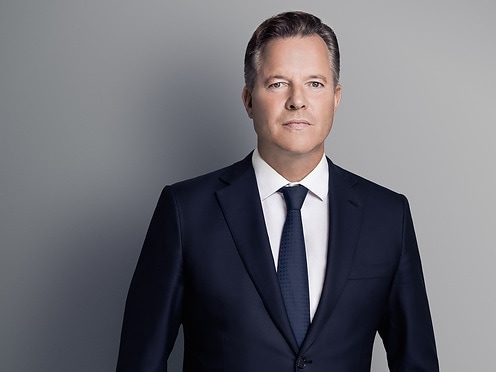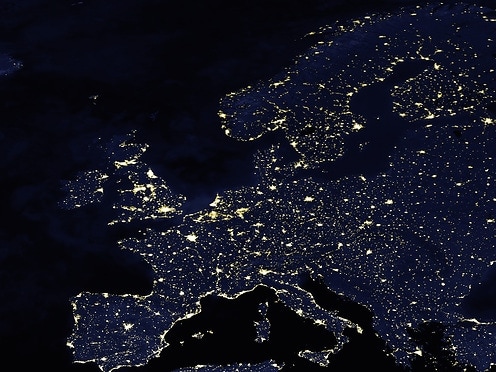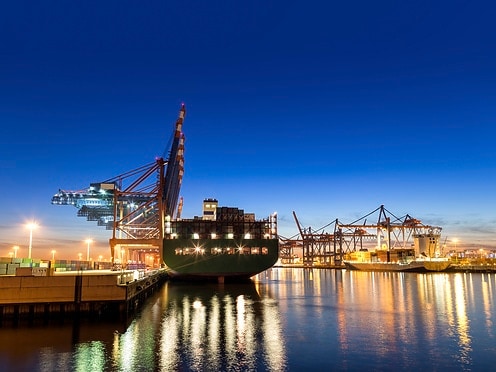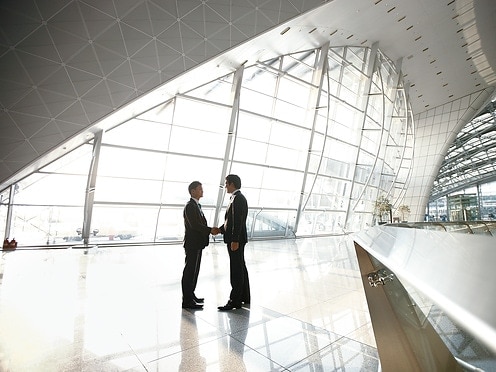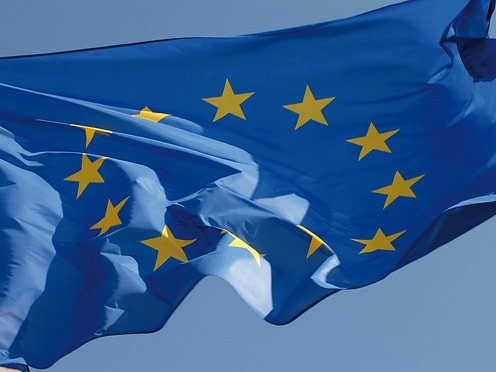The sustained impact of artificial intelligence
Editorial of the 2024 Annual and Sustainability Report

Ladies and gentlemen,
In 2024, our world again experienced a dynamic year in both geopolitical and geoeconomic terms.
Once again, we have that old alliances are crumbling and trade barriers, sanctions and technology embargoes are further decoupling the global economy. The growth of new multinational collaborations and the establishment of new supply chains should no longer obscure a long unquestionable fact: the geoeconomic turnabout caused by this geopolitical upheaval has changed our world for the long term. The world has become more complex, more fragmented and more protectionist.
In this challenging market environment, the Wilo Group generated net sales of EUR 1,895.3 million, which corresponds to a slight decrease in net sales of 2.3 percent after adjustment for currency effects. Wilo generated adjusted EBITDA of EUR 189.1 million, with a corresponding EBITDA margin of 10.0 percent. At EUR 189.1 million, we were once again able to increase cash flow from operating activities compared to the high level of the previous year and to set a new record.
In addition, Wilo has laid the foundations for continued dynamic and profitable growth through decisive, forward-looking management decisions. Through the consistent further development and transfer of the proven region-for-region approach to the entire organisation, important organisational measures were initiated to continue the Wilo Group’s sustained success.
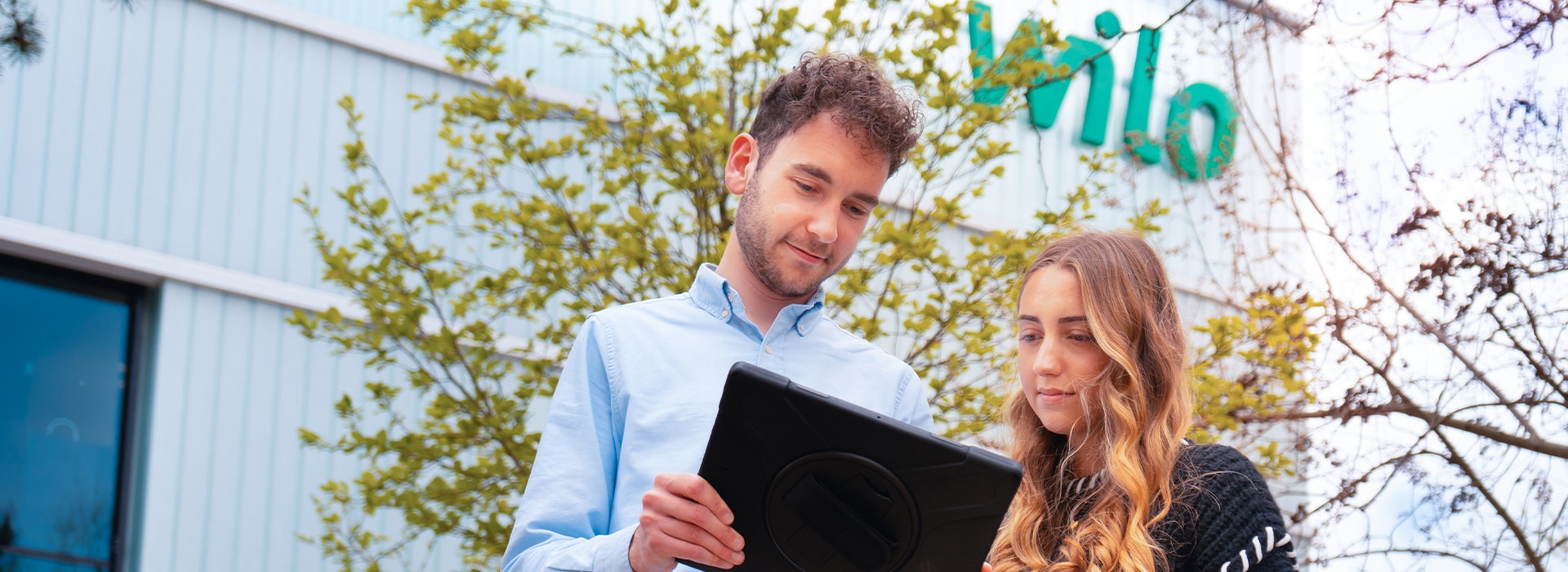
Focus on people – the hyper-impact of sustainability
An equally important, groundbreaking decision in 2024 concerned nothing less than Wilo’s overall strategic direction. Since last year, we have considered our Group-wide sustainability strategy to be an overarching approach. All other functional corporate strategies are subordinate to it - without exception.
Our sustainability strategy comprises three impact areas that determine the Wilo Group’s work today and in the future: “Creating”, “Caring” and “Connecting”. This triad is nothing less than the pacemaker of our daily work - and thus of the multinational technology group Wilo as a whole.
Specifically, by “Creating”, we mean the direct impact of our products, systems and solutions, for example on the supply of water and food, but also on the digital and AI era. “Caring” describes our responsible actions towards employees, the environment and society. This impact area includes goals such as reducing emissions in the production processes and creating a healthy working environment. Under “Connecting”, we summarise Wilo’s sustained impact through its involvement in strong international partnerships.
Our commitment to sustainability is therefore more focused than ever on the impact of our business activities. It’s a big step. And yet it is an obvious change of perspective because sustainability is not an end in itself. In recent years, we have consistently evolved into a sustainability pioneer and therefore know what the ultimate purpose of any sustainability effort is: to put people at the centre. This is the hyper-impact of sustainability - the impact of the impacts.
In other words, our actions are only sustainable when they improve people’s lives. This incorruptibly simple truth drives us, a group of over 9,000 employees, every day at around 90 production and sales companies more than 50 countries. We improve people’s quality of life worldwide. To achieve this end, we need to create, care and connect. It requires our tireless efforts in the impact areas of “Creating”, “Caring” and “Connecting”. And it requires the smart integration of artificial intelligence. This technological revolution, which is taking place as if in a timelapse video, holds a key factor in achieving our goal.
We at Wilo are convinced that the decisive factor is how we - as a company, but also society as a whole - understand AI. Dismissing it as a threat, rejecting it or even boycotting it is not an option. Only if we embrace AI, engage with it and see it as an opportunity can we exploit its true potential.
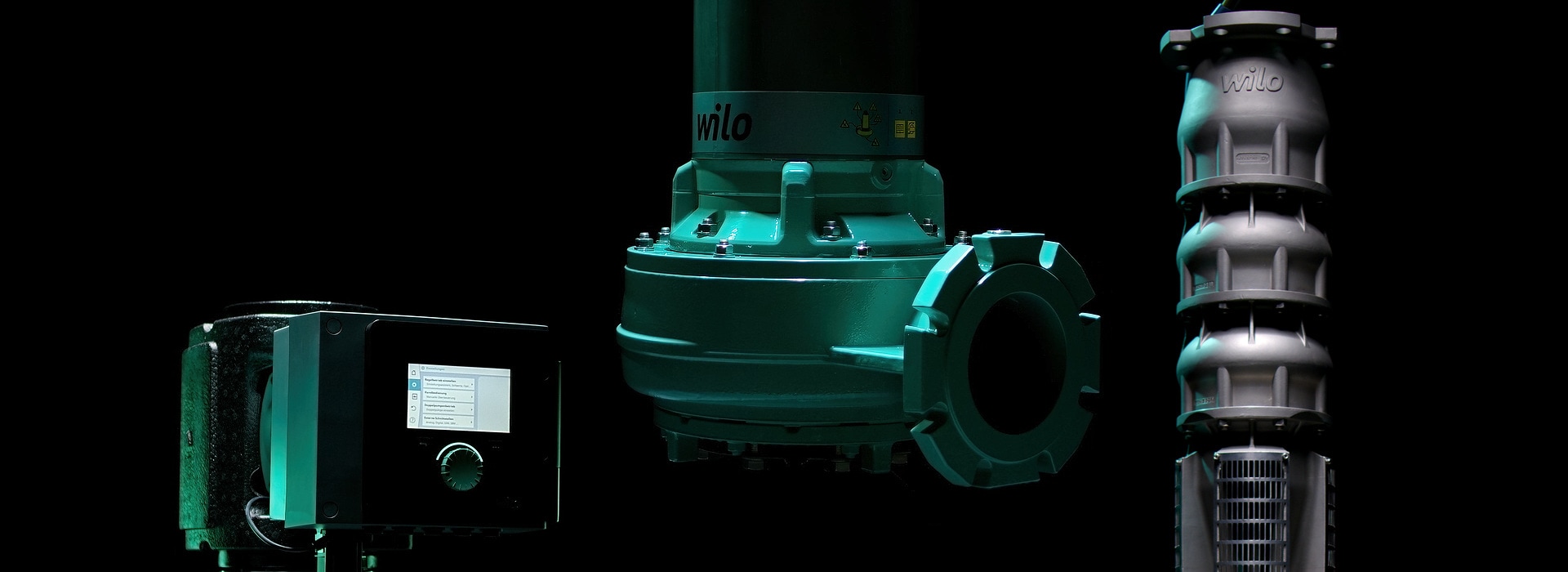
So what does artificial intelligence have to do with our goal of ultimate sustainability? Let’s take the first impact area of our strategy, CREATING:
In Wilo’s high-tech factories, we have long relied on the possibilities of technology, for example in quality management. We use AI-assisted image analysis to check the strength of seals, for example. We know whether two-component materials cure properly after a few moments, not after eight hours.
The same applies to the evaluation of the detailed 8D reports that we receive from suppliers for quality optimisation: AI helps with the time-consuming interpretation of the reports and thus increases efficiency. The AI also makes further suggestions for improvement on its own. The adaptive worker assistance system, for which Wilo’s Smart Factory in Dortmund won the Microsoft Intelligent Manufacturing Award (MIMA) last year, also incorporates AI.
The added value of technology is also obvious in the development of our products, systems and solutions. Wilo is therefore continuously working on integrating AI even more closely into development processes. This approach has been successful. In 2024, we were recognised as an outstanding practical example of the successful use of artificial intelligence in product development as part of the international comparative study “AI-driven Product Development”. The study, conducted by the Machine Tool Laboratory WZL at RWTH Aachen University and the Complexity Management Academy, examined over 150 companies. In addition to Wilo, Engel Austria, Miele, Phoenix Contact and Siemens Mobility also received awards.
"Wilo launched the Wilo-Stratos MAXO, a smart pump, back in 2019."
One example of our initiative: In a technology project, our engineers are currently working on ways AI can help determine the temperature in the motors of pumps and pump systems. However, artificial intelligence has an almost greater influence on development in the collection and interpretation of information from product operation. We recognised the value of this data many years ago: Wilo launched the Wilo-Stratos MAXO, a smart pump, back in 2019. Today, we are benefiting from this technological milestone in the development of future pump generations.
As a technology group that thinks in terms of impact areas, the application of our products, systems and solutions and the corresponding effect of this application are naturally the most relevant. Wilo technology is needed along the entire value chain of the digital economy. As an elementary component of critical infrastructure, our pumps and pump systems play a key role in AI applications of all kinds. Our impact is already evident in the raw materials that are indispensable for the digital and AI era. Wilo pumps and pump systems are used all over the world in sustainable mining projects, for example in the dewatering of shafts, but also in peripheral processes. But we also play a leading role in equipping high-tech factories for the production of hardware and semiconductors. Numerous state-of-the-art production sites of well-known companies rely on Wilo technology, especially for the cooling of processes.

Wilo creates the infrastructure required for the digital and AI era
But the heart of artificial intelligence beats elsewhere: in data centres. Processing the large volumes of data requires equally large computing capacities. It’s in data centres that AI becomes a reality. These buildings, which are being constructed at high speed all over the world, are home to gigantic servers. Cooling them requires a lot of water — and sustainable, highly efficient and reliable pumps and pump systems from Wilo to move the cooling water.
We have had the privilege of equipping data centres around the world with Wilo products, systems and solutions: the Alibaba Data Center in Zhangjiakou (China), the SK Broadband Data Center in Seoul (Korea), the Google Data Center in Hamina (Finland) and many more. Wilo creates the infrastructure required for the digital and AI era - and thus enables us to exploit the potential that these technologies bring. This is a key and increasingly important impact of Wilo.
Innovative pilot projects from the water industry, for example, show where this potential lies. AI-assisted control systems will make the water supply and distribution of tomorrow even more intelligent and thus counteract the worsening water shortage. Wilo is ready for this trend. Our smart products, systems and solutions are far more than just components of the intelligent water infrastructure of the future. They contribute data to AI-assisted intelligence.
The CARING impact area shows how we use the possibilities of AI to fulfil our responsibility towards employees, the environment and society.
We have been offering our employees the company’s own AI chatbot WiloGPT since 2023 - immediately after the hype surrounding OpenAI’s ChatGPT, which is considered a breakthrough in generative AI for all. The tool uses the same AI models as ChatGPT, and has a similar range of functions, but as part of the Wilo IT infrastructure it is compliant with data protection requirements.
Many Wilo employees are now also working with Microsoft Copilot’s AI assistance functions. And the next development is already on the horizon: In the SIMBA project, WiloGPT is combined with the Wilo DataHub, Wilo's central data platform, to allow the tool to learn Wilo-specific skills and support employees in their daily work with information specific to Wilo, regardless of position or location.
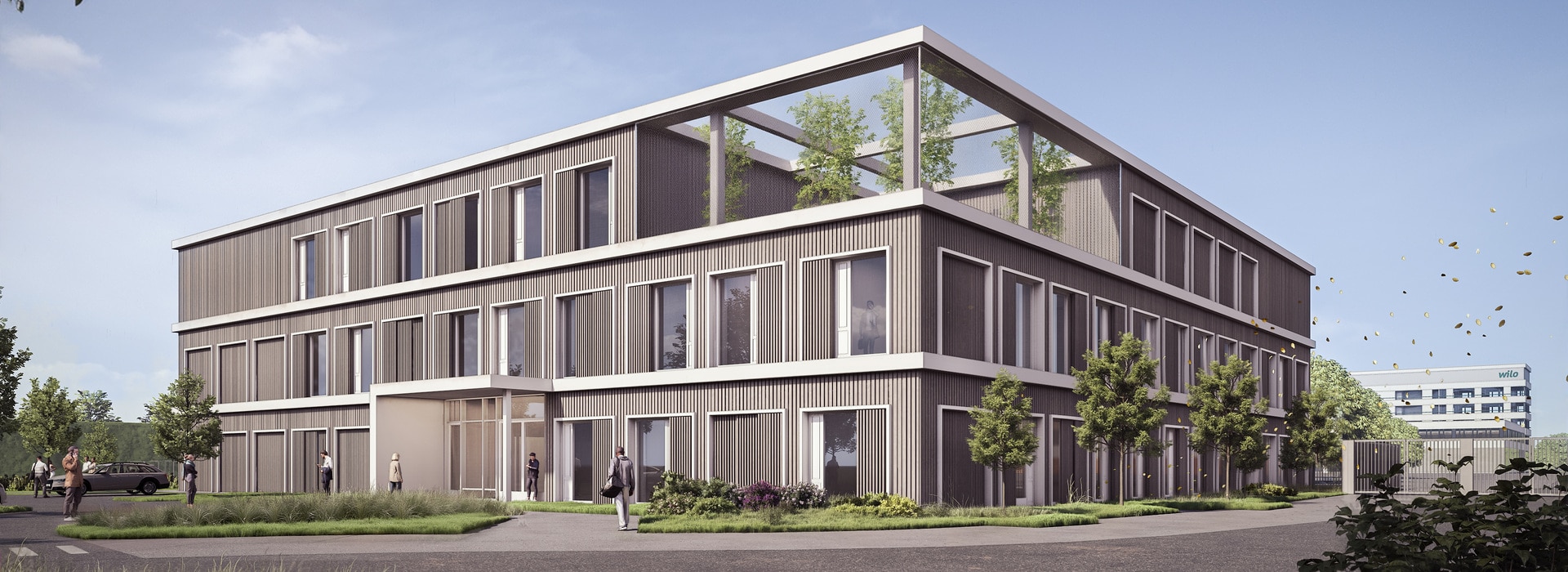
The past two years illustrate the speed at which the AI revolution is taking place. Our aim is not just to keep pace, but to lead the way - this applies to AI technology, but also to our global health management. The Health Cube is a perfect example of the “Caring” impact area. Employees worldwide and the entire Dortmund region will benefit from the innovative health centre at the Wilopark. The new building at the Wilopark will open on 1. April 2026. How can AI be integrated into the project? The project team is discussing this in the current detailed concept phase. But one thing is already certain: Artificial intelligence will also revolutionise the healthcare sector.
And what about the CONNECTING impact area? We are convinced that strong networks are needed to leverage the full potential of AI.
We can only discover the possibilities and limits of technology by exchanging ideas with partners from business, science and society. Organisations such as KI Park e.V. provide a suitable framework for this exchange. As a member of the European innovation ecosystem for AI, we are part of a strong network of companies, start-ups and research institutions that believe in the technology’s potential for prosperity and growth.
This was also the motto of last year’s meeting of top innovators in the Networking Cube at the Wilopark. At the “AI & Sustainability” workshop, Wilo experts and partners discussed trends and challenges in the areas of artificial intelligence and sustainability. Two extremely topical issues - and an exchange that needs to be continued.
AI at Wilo: sustainably successful, in 2025 and beyond
Our commitment to sustainability is geared towards concrete results - the impact of our actions. Artificial intelligence is more than a necessary precondition. This development holds considerable potential to become more efficient and sustainable if we put people at the centre of the AI revolution. Only then will it be truly sustainable.
Wilo will continue on its chosen path as a sustainable AI pioneer in 2025 and beyond. This is because AI fits in with our overall strategic direction - and will undoubtedly help the Wilo Group to continue on its profitable path of growth.
Yours,
Oliver Hermes
President & Global CEO of the Wilo Group
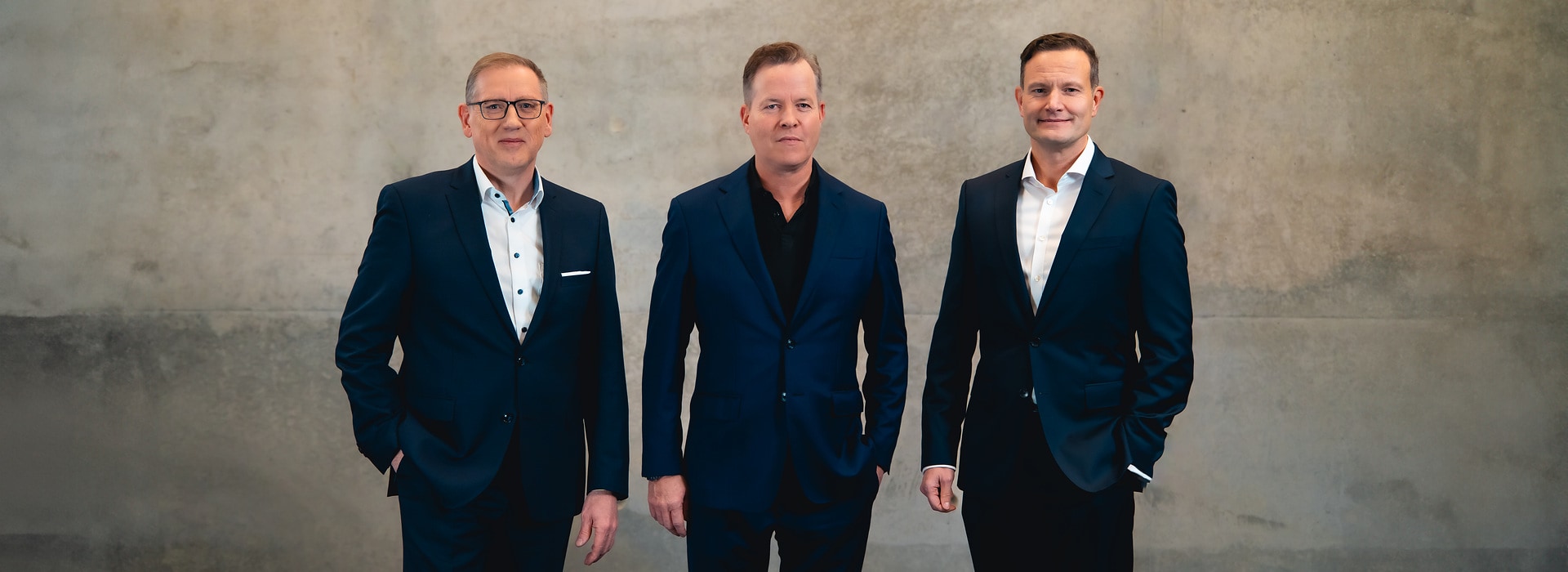
The global executive board of the Wilo Group (f.l.): Global CTO Georg Weber, President & Global CEO Oliver Hermes, Global CFO Dr. Patrick Niehr







